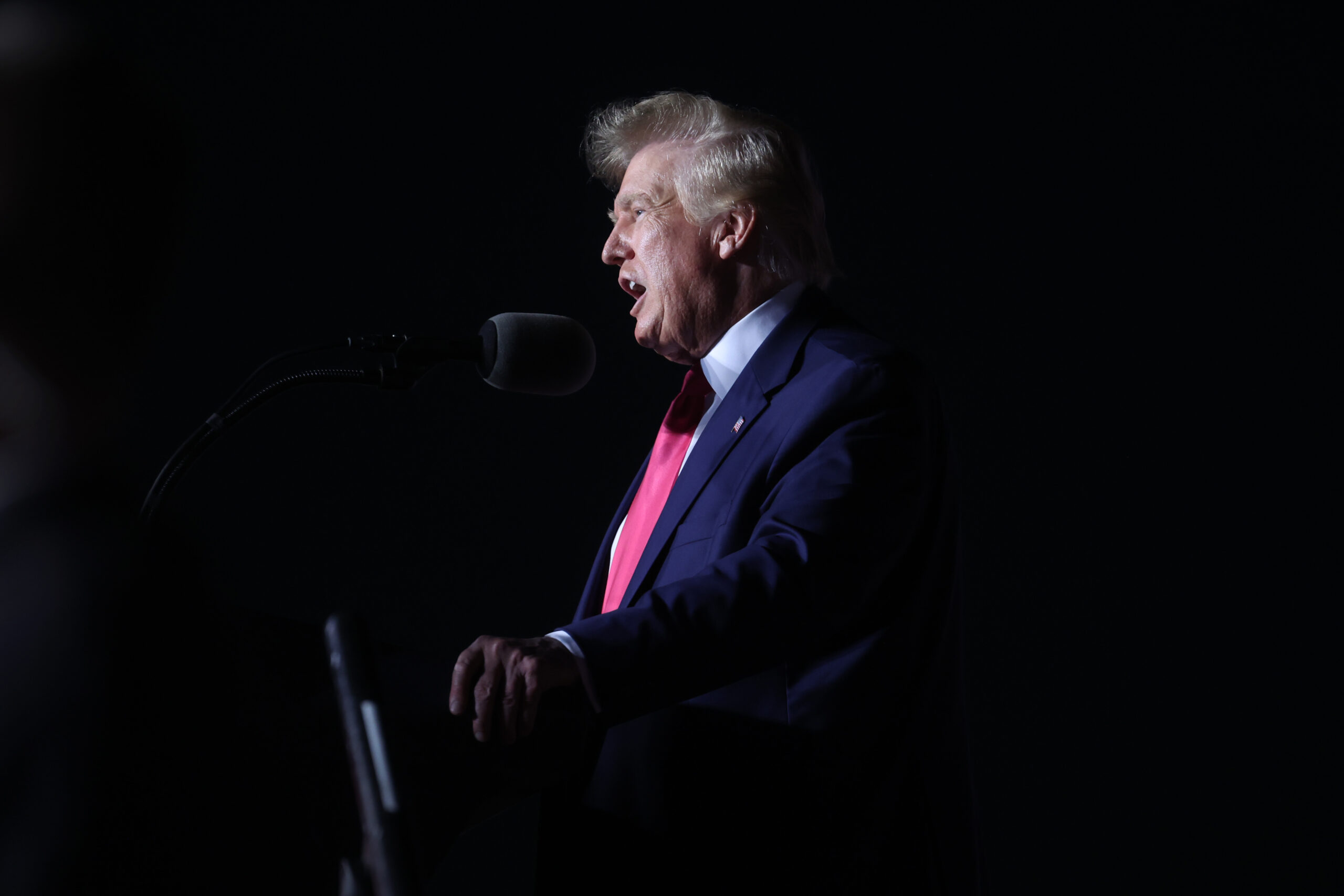NY Times Declares Trump Must Be Indicted If Guilty — Despite Threat of Civil Unrest

Scott Olson/Getty Images
The New York Times editorial board on Friday argued that if Attorney General Merrick Garland has “sufficient evidence” to establish former President Donald Trump’s guilt, the Department of Justice “must indict him.”
The Times’s editorial marks a hardening of language regarding a potential criminal prosecution of Trump among his critics and acknowledges that doing so will likely “inflame the bitter partisan divide, even to the point of civil unrest.”
The editorial board clearly did not come to this conclusion lightly and argued that the country currently faces the “greatest crisis in American democracy since the Civil War.”
The editorial is titled, “Donald Trump Is Not Above the Law,” and kicks off with a bang by arguing, “Mr. Trump’s unprecedented assault on the integrity of American democracy requires a criminal investigation.”
“The president, defeated at the polls in 2020, tried to enlist federal law enforcement authorities, state officials and administrators of the nation’s electoral system in a furious effort to remain in power. When all else failed, he roused an armed mob that stormed the Capitol and threatened lawmakers,” the Times declared, setting up the premise that if Trump is not prosecuted for Jan. 6th, following presidents will be emboldened to resist the peaceful transfer of power which has facilitated American democracy for over 200 hundred years.
“If Attorney General Merrick Garland and his staff conclude that there is sufficient evidence to establish Mr. Trump’s guilt on a serious charge in a court of law, then they must indict him,” the editorial continues, noting the recent raid on Trump’s private residence and his apparently illegal retention of top secret documents.
“This board is aware that in deciding how Mr. Trump should be held accountable under the law it is necessary to consider not just whether criminal prosecution would be warranted but whether it would be wise,” the Times goes on, arguing that the blowback must be a key consideration in any potential indictment.
“Pursuing prosecution of Mr. Trump could further entrench support for him and play into the conspiracy theories he has sought to stoke. It could inflame the bitter partisan divide, even to the point of civil unrest,” the editorial argues.
“In the hours after federal agents began a court-approved search of Mr. Trump’s residence in Palm Beach… his most fervent supporters escalated their rhetoric to the language of warfare,” the Times continued.
“Yet it is a far greater risk to do nothing when action is called for. Aside from letting Mr. Trump escape punishment, doing nothing to hold him accountable for his actions in the months leading up to Jan. 6 could set an irresistible precedent for future presidents,” the Times argued.
“America is not sustained by a set of principles; it is sustained by resolute action to defend those principles,” the editorial board continued, arguing on behalf of ensuring no president is above the law.
“If we hesitate to call those actions and their perpetrator criminal, then we are saying he is above the law and giving license to future presidents to do whatever they want,” the board argued, concluding:
Mr. Trump’s actions have brought shame on one of the world’s oldest democracies and destabilized its future. Even justice before the law will not erase that stain. Nor will prosecuting Mr. Trump fix the structural problems that led to the greatest crisis in American democracy since the Civil War.





Comments
↓ Scroll down for comments ↓